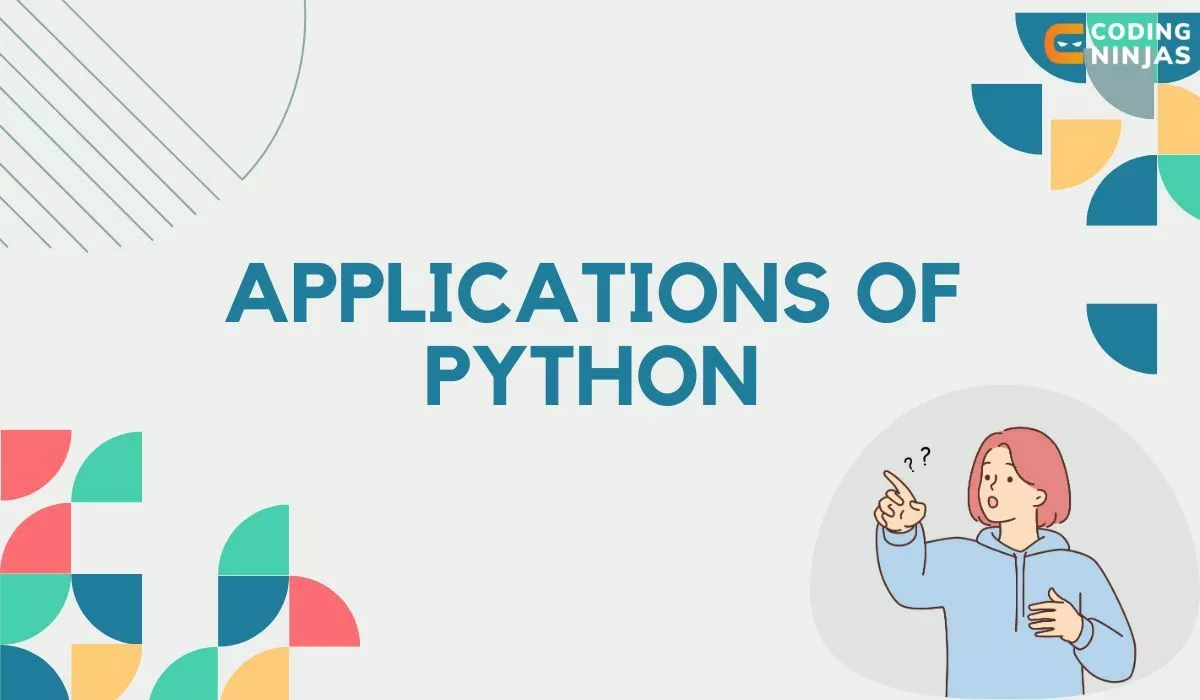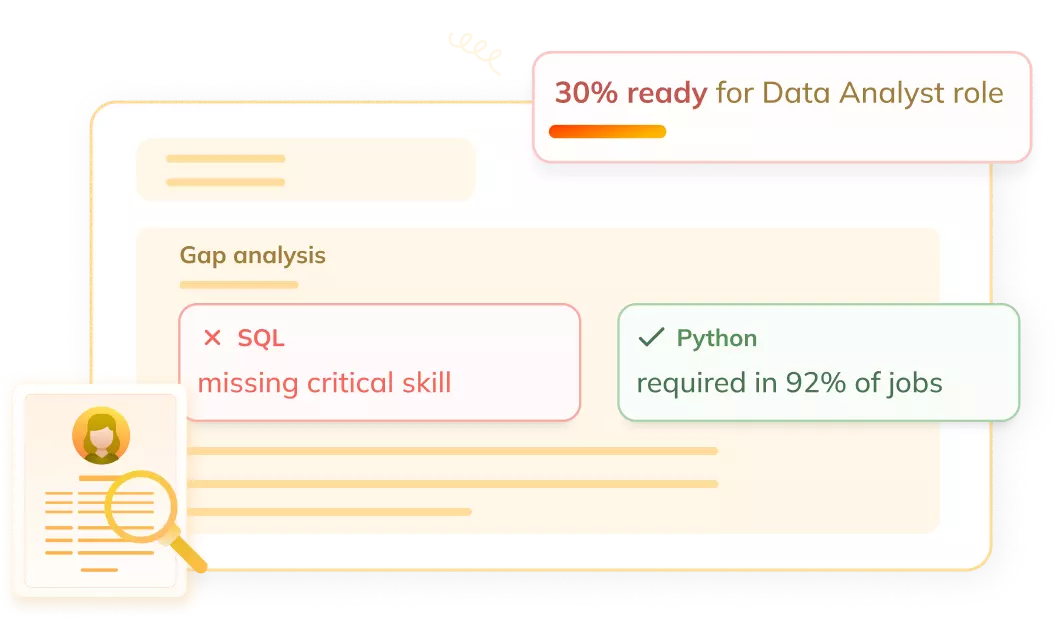Introduction
Python is a versatile and widely-used programming language known for its simplicity and readability. Its broad range of applications makes it a popular choice among developers across various fields. From web development and data analysis to artificial intelligence and automation, Python's vast libraries and frameworks facilitate diverse use cases. Its user-friendly syntax and robust community support enable rapid development and integration, making Python a valuable tool for both beginners and seasoned professionals.

Also see, Floor Division in Python
Top 10 Python Applications in Real-World
Web Development
Python should be the first choice when it comes to web development. Why?
This is due to the fact that Python has a wide range of web development possibilities. For example, Django, Pyramid, Flask, and Bottle may be used to create web frameworks and even comprehensive content management systems like Plone and Django CMS. These web frameworks include standard libraries and modules for content management, database interaction, and interacting with internet protocols such as HTTP, SMTP, XML, JSON, FTP, IMAP, and POP.
The security, scalability, and flexibility of Python web frameworks are well-known. In addition, libraries like Requests, BeautifulSoup, Paramiko, Feedparser, and Twisted Python are available in Python's Package Index.
Machine Learning and Artificial Intelligence
AI/ML applications require a strong, safe, and versatile language, as well as tools that can manage the project's different particular requirements. Python has all of these characteristics, and as a result, it has become one of the most popular languages among data scientists. Python is a required tool in data science courses.
Python is the ideal tool for constructing AI and machine learning applications because of its simplicity, consistency, platform freedom, extensive library of useful tools, and active community. The following are some of the finest Python packages for AI and machine learning:
- SciPy is a Python package for advanced computation.
- Pandas is a data analysis tool that may be used for various purposes.
- Seaborn is a data visualization platform.
- Keras, TensorFlow, and Scikit-learn are all machine learning frameworks.
- NumPy, a Python package for scientific computing and data analysis.
Data Science
Data science entails collecting, sorting, analyzing, and visualizing information. Python has incredible capabilities for dealing with statistics and complicated mathematical calculations. The existence of built-in libraries makes data science professionals' lives easier. TensorFlow, Pandas, and Socket learning are some of the prominent packages that make data research easier. These libraries act as a hub for fine-tuning data models, preparing data, and performing advanced data analysis.
Game Development
Python has shown to be an excellent choice for game development in the fast-developing gaming sector. Python programming is used in popular games like Pirates of the Caribbean, Bridge Commander, and Battlefield 2 for a variety of functions and addons. The inclusion of popular 2D and 3D gaming libraries like pygame, panda3D, and Cocos2D makes game production a breeze.
Audio and Visual Applications
The audio and video applications in Python are without a doubt its most remarkable feature. Python comes with a plethora of tools and libraries to help you do your task flawlessly. Netflix, Spotify, and YouTube are just a few of the well-known Python-coded apps. This is handled by libraries like:
- Dejavu
- Pyo
- Mingus
- SciPy
- OpenCV
Software Development
Python packages and apps are designed to make software development easier. Python can do everything, from designing complicated systems involving scientific and quantitative computation to developing desktop and online apps. Software developers use Python as a support language for build management, testing, and administration.
SCons, for example, is built specifically for build control. Buildbot and Apache Gump provide automated continuous compilation and testing, while Roundup and Trac are excellent bug tracking and project management tools.
CAD Applications
CAD stands for computer-aided design, it is the process of digitally producing 3D and 2D models. Architects, product designers, and construction managers use this tool to create items with exceptionally high consistency, which has replaced human drift. Python comes pre-installed with fantastic apps such as Blender, FreeCAD, Open Cascade, and many others that help you create items quickly. Technical sketching, dynamic system development, recordings, file export, and import are upgraded features.
Business Applications
Python has outstanding security and scalability, making it ideal for developing high-performance business applications. It includes libraries and tools such as:
Odoo: A business management software that automates your business processes.
Tryton: An open-source business software that is simple to use. Financial accounting, sales, CRM, purchasing, shipping, and a long list of other services are all completely linked.
All of these unique characteristics qualify it for use in business applications.
Desktop GUI
Python is an interactive programming language that enables developers to quickly and simply design graphical user interfaces. It has many built-in tools such as PyQT, kivy, wxWidgets, and many more libraries that may be used to create a fully functional GUI safely and efficiently.
Web Scraping Application
Web scraping is an automated method of extracting information from websites in a more efficient and timely manner. Researchers, companies, and analysts utilize the data for various purposes. Python has several characteristics that make it perfect for web scraping, including:
A simple syntax that improves readability and saves time.
The web scraping process is made simple and efficient by various libraries and tools such as pandas, matplotlib, and Selenium.
Simple to use and comprehend




